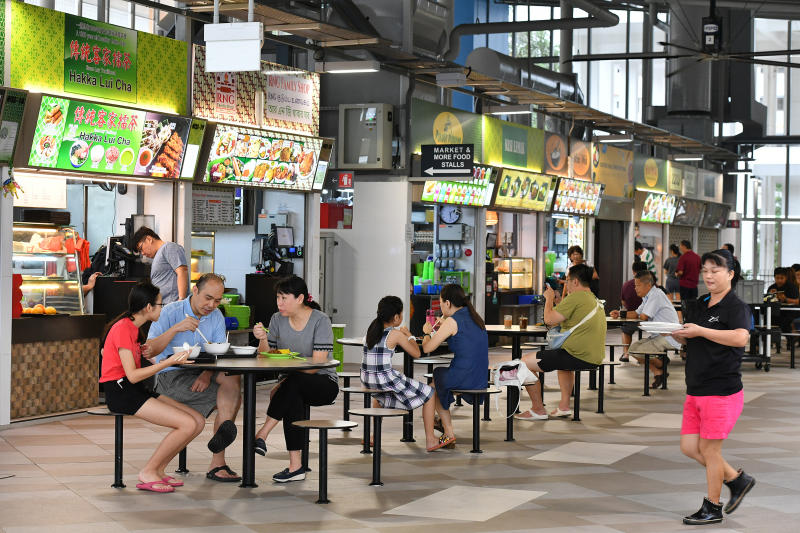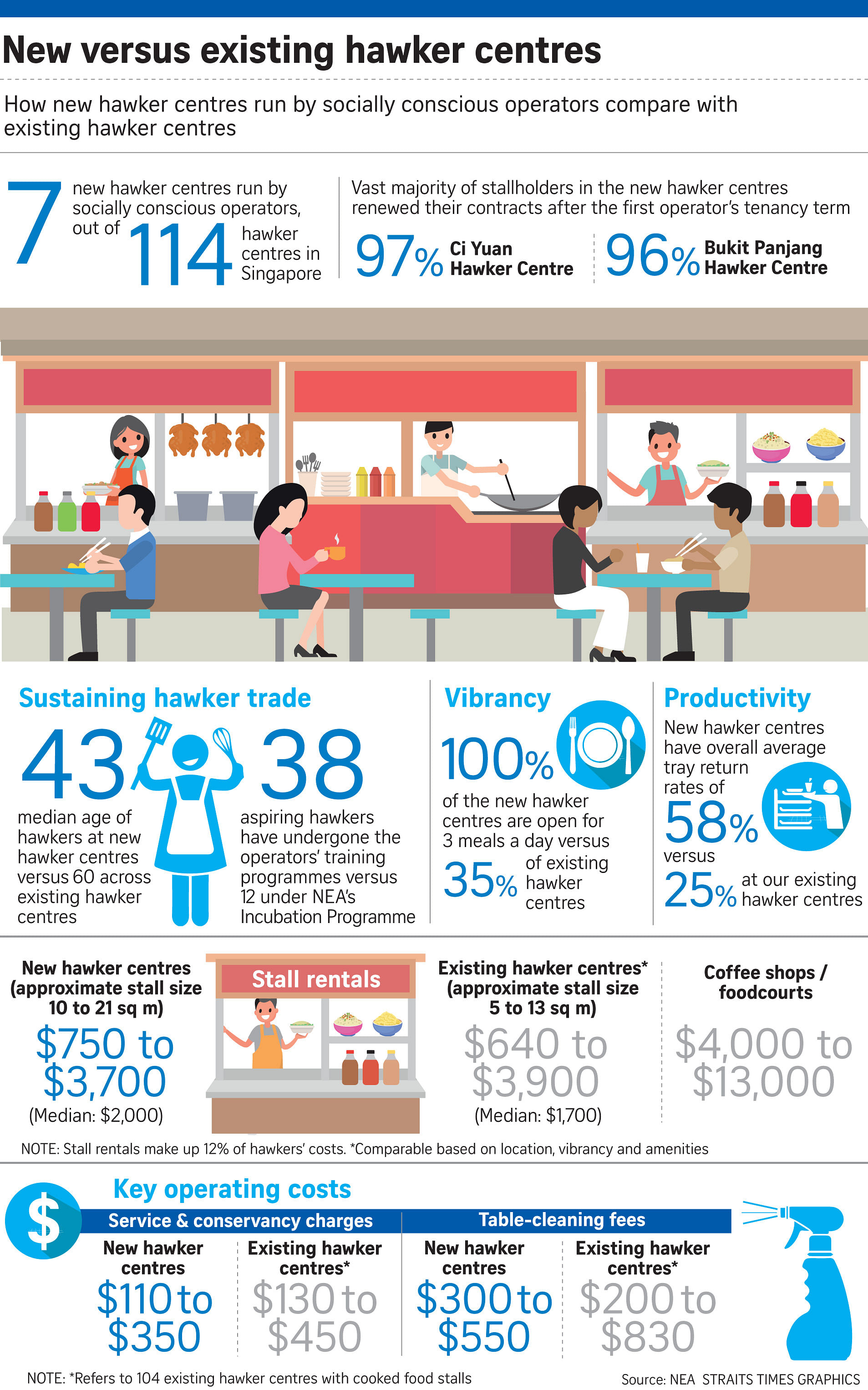Parliament: MPs question Amy Khor on socially conscious enterprise hawker centres
Sign up now: Get ST's newsletters delivered to your inbox

Senior Minister of State for the Environment and Water Resources Amy Khor said the Government is open to any model as long as it can achieve the social objectives set out for new hawker centres.
ST PHOTO: CHONG JUN LIANG
SINGAPORE - MPs had questions for Senior Minister of State for the Environment and Water Resources Amy Khor after she spoke in Parliament on Monday (Nov 19) about socially conscious enterprise hawker centres (SEHCs).
Ms Lee Bee Wah (Nee Soon GRC) asked what the definition of social enterprise is. She said she understood that hawkers are managed by the social enterprise hawker centre company and National Environment Agency (NEA) staff oversee the social enterprise company.
She asked: "What my residents have been asking is, why can't we take away all these layers?"
Dr Khor replied that the phrase "social enterprise hawker centre" that the media has been using may be a bit of a misnomer, adding: "We actually started by saying socially conscious operators."
This refers to operators who know that if they tender for these hawker centres and run them, there must be a social mission, she said.
She also said some reasons for looking at a new management model for new hawker centres are the inherent challenges in the hawker trade - ageing profile of hawkers, manpower constraints, and the evolving needs and tastes of patrons.
"These are some of the challenges and, therefore, we look at how we can actually try out, pilot, a new management model in order to overcome these challenges and to meet our social objectives."
Mr Liang Eng Hwa (Holland-Bukit Timah GRC) asked whether the social enterprise model is the only way to go for new hawker centres, and if NEA is open to other models as well, such as the hawkers coming together to self-manage, or for NEA to run the hawker centres - at least for a while - and then translate the model to a non-NEA run one.
Dr Khor replied the Government is open to any model as long as it can achieve the social objectives set out for new hawker centres.
But she qualified this and added: "We need to note also that whatever model that we may adopt, I think there will always be challenges, even as there may be benefits."
Therefore, whatever model that is adopted needs time to settle down, she said.
Citing the SEHC model as an example, she said it is "in its infancy" and still evolving.
"We always had the intention that we will continue to monitor, evaluate and refine and improve the model."
Nominated MP Walter Theseira asked how hawkers, if they are self-employed, can be compelled by social enterprises or by the Government to work certain hours or to meet other conditions of work. He added that the problem seems to be that hawkers are expected to bear some of the burdens of being an employee, but without the benefits of a guaranteed and stable income.
In response, Dr Khor said the hawkers are small business entrepreneurs, and enter into an agreement with the operators to operate the hawker stall subject to various conditions that they are agreeable to.
The reason for implementing some minimum operating hours - as well as a minimum number of days - is to ensure the hawker centres can provide at least three meals - breakfast, lunch, dinner - through the day, and throughout the week, to ensure the vibrancy of the hawker centres, she said.
She added that the hawkers were not compelled, and that they entered into the agreements "voluntarily and knowingly".



